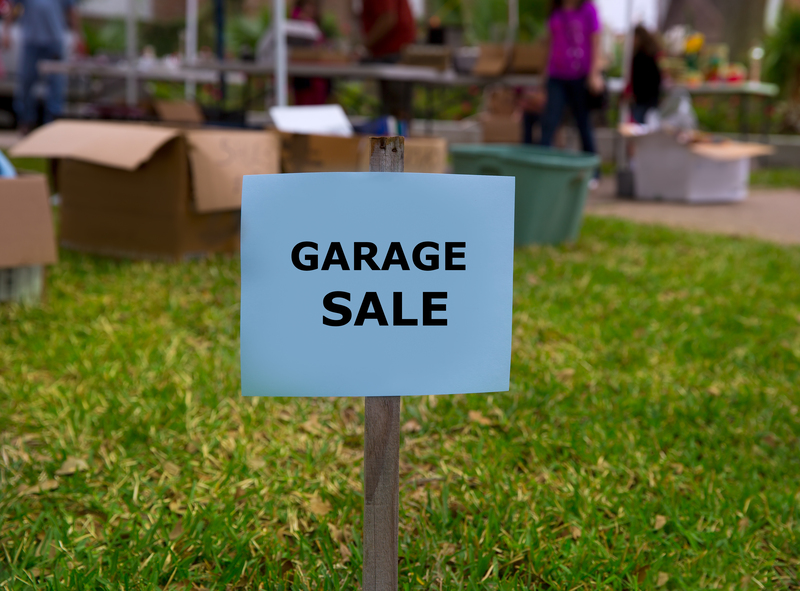Making PPE Waste Disposal Part of Your Sustainability Routine
The surge in use of Personal Protective Equipment (PPE) such as masks, gloves, and face shields--sparked by the global pandemic and ongoing health awareness--has emphasized the crucial need for responsible PPE waste management. Incorporating PPE waste disposal into your sustainability routine not only reduces environmental harm, but it also strengthens your commitment to eco-friendly practices at home, work, or in your community.
Why Does Responsible PPE Disposal Matter?
The widespread adoption of disposable PPE has provided much-needed protection, yet it has also introduced a new challenge: increased PPE waste. Tens of billions of single-use masks and gloves are discarded annually, significantly impacting the environment. This waste can take hundreds of years to decompose and is often found littering streets, waterways, and landfill sites.
Improper PPE disposal poses several threats:
- Environmental Pollution: Non-biodegradable plastics pollute oceans and wildlife habitats.
- Health Hazards: Discarded PPE can harbor pathogens, endangering waste workers and the general public.
- Resource Depletion: Manufacturing and improper disposal waste valuable materials.

Understanding the Types of PPE Waste
Making informed decisions about PPE waste disposal starts with recognizing the variety of PPE items and how they are made:
- Masks: Surgical, N95, and cloth masks. Most disposable masks are made from polypropylene plastics.
- Gloves: Latex, nitrile, and vinyl, which don't easily biodegrade.
- Face Shields & Goggles: Hard plastics and rubber components.
- Protective Gowns & Aprons: Often mixed synthetic fabrics.
Many of these materials are not accepted in regular recycling streams due to contamination concerns and their mixed composition.
Environmental Impact of Improper PPE Waste Disposal
Environmental impact is the foremost concern of unsustainable PPE disposal. When PPE is not disposed of properly, it:
- Contributes to Ocean Plastic: Discarded PPE has been found on beaches and ocean floors worldwide, threatening marine life and ecosystems.
- Adds to Microplastics: Over time, PPE breaks down into microplastics, which are ingested by animals and may enter the human food chain.
- Leads to Landfill Overflow: Most single-use PPE ends in the garbage, adding significant bulk to already-crowded landfills.
- Risks Wildlife Exposure: Animals may become entangled in PPE or ingest it, causing harm or death.
Best Practices for Sustainable PPE Waste Management
Integrating thoughtful PPE waste disposal into your sustainability routine requires awareness, planning, and access to the right resources. Here's how to approach this challenge:
1. Reduce and Reuse Where Possible
- Opt for Reusable PPE: Whenever feasible, use washable cloth masks or reusable face shields that can be sanitized and worn multiple times.
- Minimize Usage: Use single-use PPE only where necessary, and educate your employees or family about proper use to avoid waste.
2. Spend Wisely on Sustainable PPE
- Choose Eco-Friendly Products: Some manufacturers now produce biodegradable or compostable masks and gloves.
- Look for Certifications: Select PPE certified by recognized environmental standards.
3. Separate PPE Waste from Other Trash
- Use Clearly Marked Bins: Dedicate containers exclusively for PPE in offices, clinics, and public spaces.
- Prevent Contamination: Ensure used PPE does not mix with recyclable items.
4. Partner with Specialized PPE Recycling Programs
- Research Local Recycling Facilities: Some recycling programs accept PPE waste, such as masks and gloves, for specialized processing.
- Mail-Back and Drop-Off Programs: Companies like TerraCycle in the US and other similar organizations offer solutions for recycling hard-to-process PPE.
5. Educate and Train Your Community
- Promote Proper Disposal Methods: Hold workshops, create posters, or use digital communications to inform colleagues, customers, and neighbors about PPE waste disposal protocols.
- Lead by Example: Make it routine to dispose of PPE responsibly, and encourage others to follow suit.
Innovative Solutions for PPE Waste Disposal
Technology and innovation are driving PPE waste management into a new era. Here are some promising approaches:
- PPE Upcycling Projects: Companies and researchers are transforming discarded masks into building blocks, pavement, or insulation material.
- Biodegradable PPE: Start-ups are developing masks and gloves from plant-based materials that break down safely.
- Energy-from-Waste Facilities: Advanced incineration techniques convert PPE garbage into usable electricity or heat, minimizing landfill impact.
- Public-Private Partnerships: Municipalities are collaborating with private firms for large-scale collection and recycling initiatives.
Steps to Incorporate PPE Waste Disposal into Your Sustainability Routine
Making PPE waste disposal a seamless part of your sustainability efforts involves simple but effective habits:
- Assess Your PPE Usage: Track how much PPE you use at home, in your organization, or business.
- Install Dedicated PPE Disposal Bins: Label and place bins in key locations.
- Engage with Local Authorities: Check municipal guidelines for handling PPE waste--different regions may have varying protocols.
- Join or Initiate Recycling Programs: Partner with recycling services for collection and proper processing.
- Update Your Sustainability Policy: Add PPE management guidelines to your organizational sustainability plan.
Encourage reviewing and updating habits regularly, as new techniques and products continue to emerge.
Case Study: Businesses Leading in PPE Waste Sustainability
Many organizations are setting a benchmark in PPE waste management as part of their CSR and environmental strategies:
- Healthcare Facilities: Some hospitals have dramatically reduced PPE waste by investing in sterilizable, reusable masks and gowns.
- Retail Chains: Stores like Co-op and Sainsbury's have deployed PPE recycling points for customers and staff, diverting tons of waste from landfills.
- Corporate Offices: Global firms are collaborating with recycling companies and providing PPE collection boxes on their premises.
These efforts show that making PPE waste disposal part of your sustainability routine isn't just possible--it's practical and impactful.
FAQs about PPE Waste Disposal and Sustainability
-
Can I recycle disposable masks and gloves?
No, most standard recycling streams cannot process these materials due to their mixed composition and contamination risk, but specialized recycling programs can help.
-
What should I do with used PPE if I'm sick?
Double-bag used PPE and store it securely before disposal, following local health guidelines to protect sanitation workers.
-
Are there eco-friendly PPE options?
Yes, look for products made from plant-based or biodegradable materials--and always verify manufacturer claims.
-
How do I set up a PPE recycling program?
Contact specialized waste companies or your local authority, label collection bins, and promote participation in your community.

Future Outlook: Sustainable PPE and Circular Economy
As the world becomes more conscious of environmental impacts, the push for a circular economy--the creation of products designed to be reused or recycled--is extending to PPE. Governments, manufacturers, and communities are investing in research and policy changes to ensure more sustainable options.
Consumer demand for sustainable PPE disposal is influencing industry standards, and new laws may soon require businesses to provide solutions for their own PPE waste streams.
Conclusion: Commit to Including PPE Waste Disposal in Your Routine for a Greener Tomorrow
Making PPE waste disposal part of your sustainability routine is a powerful step toward protecting both personal health and the planet. By rethinking habits, supporting innovative solutions, and advocating for responsible disposal, every individual and organization plays an important role in curbing the environmental footprint of PPE.
Let's build a safer, cleaner future--one mask, glove, and shield at a time, by making PPE waste management a daily sustainability practice.
- Reduce single-use PPE when possible.
- Switch to reusable and eco-friendly alternatives.
- Recycle via specialized programs.
- Educate yourself and your community.
- Advocate for better industry and government practices.
By turning PPE disposal into an integral part of your sustainable lifestyle, you help pave the way toward a healthier, more environmentally friendly world.
